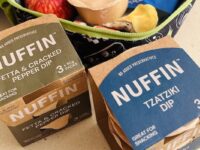
Supermarket giant Woolworths has announced it will extend its current dairy contribution payments for its two and three litre fresh own brand milk products until June 2021.
Over 450 dairy farmers supply milk to Woolworths for its own branded product. The grocery said its 10 cent per litre levy put back A$50 million to local dairy farmers since it was first rolled out in 2018. The levy is expected to provide an extra A$30 million to farmers over the next 12 months.
The supermarket giant has also created a A$5 million fund to provide infrastructure and technology grants to dairy farmers to upgrade on-farm efficiency and profitability over the next three years. It is working with stakeholders in designing the program and is expecting to open applications later this year.
“Our levy has provided much-needed relief to dairy farmers and we’re grateful for our customers’ support of the program. While conditions have improved and farmgate prices have gone up since we started the levy in 2018, we’re extending payments to provide certainty while dairy farmers and processors find their feet under the new mandatory code,” Woolworths director of fresh food, Paul Harker said.
Harker said that the company will return tens of millions to local farmers over the next 12 months “above and beyond the farmgate price” they originally paid their processors.
The move coincides with the Federal Government’s Mandatory Code of Conduct which comes into full effect on Monday, with dairy processors now required to publish agreements with farmers setting out minimum milk prices.
Consumer watchdog ACCC has called on both farmers and processsors to ensure they both understand their rights and obligations under the code for milk supply agreements.
The mandatory industry code of conduct was initially implemented on January 1, 2020, with dairy processors to publish supply agreements on their websites by June 1. standard form milk supply agreements.
The code states those purchasing milk directly from farmers as processors which includes co‑operatives, retailers and brokers. But it does not apply to small business entities. Its requirement includes a minimum price for milk; a 14 day cooling-off period and a complaints handling process as well as acting in good faith during negotiations with each other.
“We are reminding processors of their obligations to comply with the code, including by publishing relevant contracts on their website before the June 1 deadline. The ACCC is responsible for enforcement of the code, and we will be checking for compliance. If farmers believe a processor hasn’t complied with their publishing obligations, they can contact the ACCC,” ACCC deputy chair Mick Keogh said.
Keogh said the ACCC’s 2018 dairy inquiry highlighted a lack of transparency in contracting and pricing practices in the milk sector, and an imbalance in bargaining power between processors and farmers.
“The new mandatory dairy code has been introduced to address these issues, and we want to see both farmers and processors engaging with it and ensuring they are complying with it in faith to help address these issues,” he said.
















